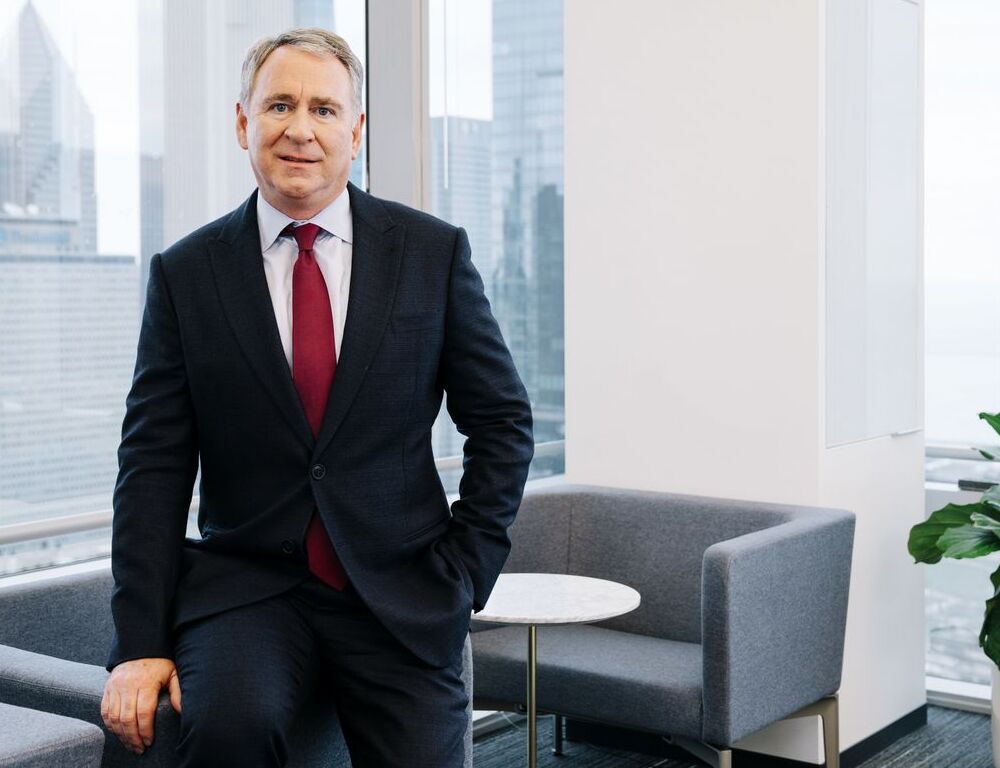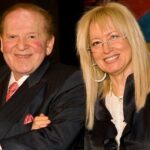- Home
- Billionaires
- Investing Newsletters
- 193CC 1000
- Article Layout 2
- Article Layout 3
- Article Layout 4
- Article Layout 5
- Article Layout 6
- Article Layout 7
- Article Layout 8
- Article Layout 9
- Article Layout 10
- Article Layout 11
- Article Layout 12
- Article Layout 13
- Article Layout 14
- Article Sidebar
- Post Format
- pages
- Archive Layouts
- Post Gallery
- Post Video Background
- Post Review
- Sponsored Post
- Leadership
- Business
- Money
- Small Business
- Innovation
- Shop
Recent Posts
Ken Griffin: The Visionary Behind Citadel’s Rise

Ken Griffin is a name that resonates across financial markets, philanthropy, and business innovation. As the founder and CEO of Citadel, one of the most successful hedge funds in history, Griffin’s journey from a determined college student trading from his dorm room to a titan of global finance is a narrative filled with ambition, risk-taking, and unprecedented success. Born on October 15, 1968, in Daytona Beach, Florida, Griffin showed early signs of the intellect and drive that would later characterize his extraordinary career. His early interest in business and finance was sparked in part by reading investment books, and by the time he enrolled at Harvard University, his fascination with the markets had become a full-blown passion.
While at Harvard, Griffin famously installed a satellite dish on the roof of his dorm to gain real-time stock quotes, enabling him to begin trading convertible bonds. He launched his first fund with money from family and friends and quickly showed a natural talent for risk management and investment strategy. This dorm room initiative would lay the groundwork for what would eventually become Citadel. Griffin graduated in 1989 with a degree in economics and wasted no time pursuing his vision of building a world-class investment firm.
Citadel was founded in 1990, shortly after Griffin completed college, with just $4.6 million under management. Over the decades, the firm expanded rapidly under his leadership, developing a reputation for its data-driven, technologically advanced, and quantitatively rigorous investment approaches. Griffin’s emphasis on recruiting top-tier talent from diverse disciplines helped the firm thrive and adapt amid the ever-evolving landscape of global finance. Citadel’s multi-strategy platform became a model for modern hedge funds, and Griffin’s risk-focused leadership helped the firm weather financial storms, including the 2008 global financial crisis.
What sets Griffin apart from many of his contemporaries is not just his financial acumen but also his relentless pursuit of excellence. His management philosophy is centered on meritocracy, innovation, and precision. He demands the best from his employees and often cites that success in finance hinges on relentless discipline and a refusal to accept mediocrity. This approach has not only propelled Citadel to the upper echelons of the hedge fund world but also helped it become one of the largest market makers through its separate trading arm, Citadel Securities.
Beyond the trading floors and balance sheets, Griffin has also made headlines for his extensive philanthropic work. His charitable contributions span education, science, medicine, and the arts. He has donated hundreds of millions of dollars to institutions like Harvard University, the University of Chicago, and various museums and research centers. In 2014, he donated $150 million to Harvard, marking the largest single gift in the university’s history at the time. Griffin’s philanthropy reflects a deep-seated belief in the transformative power of education and knowledge.
Griffin is also known for his passion for art and real estate. He has made headlines with record-breaking purchases in both fields, including buying several pieces of modern and contemporary art at astronomical prices and acquiring some of the most expensive real estate in New York, London, and Palm Beach. These acquisitions not only reflect his immense wealth but also his interest in culture and enduring value. Despite his staggering financial success, Griffin continues to emphasize the importance of building institutions that last and contribute meaningfully to society.
Politically, Griffin is an active donor and has supported candidates and causes aligned with his views on fiscal responsibility and economic growth. While this has drawn both admiration and criticism, Griffin remains firm in his convictions, often stating that a healthy democracy depends on active engagement from its citizens, including those in business.
Ken Griffin’s influence extends far beyond Wall Street. He has redefined what it means to be a hedge fund manager in the 21st century by integrating cutting-edge technology, fostering a culture of excellence, and maintaining a long-term vision. He has helped reshape market structures, pushed for transparency, and advocated for better financial systems. Under his leadership, Citadel has consistently been at the forefront of innovation, from algorithmic trading to the use of artificial intelligence and high-frequency trading strategies.
Despite the intense pressure of the industry and his numerous responsibilities, Griffin remains actively involved in the strategic direction of his firms. He is known for his intense focus, sharp intellect, and ability to synthesize complex data into actionable insights. His commitment to mentoring young talent and his willingness to invest in people underscore his belief that human capital is the most valuable asset in any organization.
Griffin’s life story is a testament to the power of vision, tenacity, and innovation. From trading bonds in a dorm room to managing one of the world’s largest hedge funds, his career embodies the American entrepreneurial spirit. Through his financial achievements, philanthropic generosity, and thought leadership, Ken Griffin has cemented his place among the most influential figures in global finance. He continues to shape markets, inspire future leaders, and leave a lasting impact on multiple spheres of society.
- algorithmic trading
- American entrepreneurs
- American finance
- art collection
- Asset Management
- billionaire philanthropists
- Billionaires
- business strategy
- capital markets
- Chicago
- Citadel
- Citadel Securities
- convertible bonds
- corporate culture
- donations
- Economic Growth
- economic vision
- Economics
- Education
- Finance
- financial innovation
- Financial Markets
- Financial success
- Global Markets
- Griffin biography
- Harvard University
- hedge funds
- high-frequency trading
- institutional investing
- investment management
- Investment Strategy
- Ken Griffin
- Leadership
- London
- market maker
- meritocracy
- modern hedge funds
- New York
- Palm Beach
- Philanthropy
- political donations
- portfolio management
- private wealth
- quantitative finance
- Real Estate
- Risk management
- Stock Market
- Technology in finance
- Trading
- Wall Street
- Wealth
Recent Posts
Categories
- 193 Countries Consortium Partner1
- 193cc Digital Assets2
- 5G1
- Aerospace & Defense48
- AI37
- Arts3
- Banking & Insurance11
- Big Data3
- Billionaires1,506
- Boats & Planes1
- Business332
- Careers13
- Cars & Bikes79
- CEO Network1
- CFO Network17
- CHRO Network1
- CIO Network1
- Cloud10
- CMO Network18
- Commercial Real Estate7
- Consultant1
- Consumer Tech194
- CxO1
- Cybersecurity73
- Dining1
- Diversity, Equity & Inclusion4
- Education7
- Energy8
- Enterprise Tech29
- Events11
- Fintech1
- Food & Drink2
- Franchises1
- Freelance1
- Future Of Work2
- Games149
- GIG1
- Healthcare79
- Hollywood & Entertainment203
- Houses1
- India’s 1000 Richest1
- Innovation46
- Investing2
- Investing Newsletters4
- Leadership65
- Lifestyle11
- Manufacturing1
- Markets20
- Media327
- Mobile phone1
- Money13
- Personal Finance2
- Policy569
- Real Estate1
- Research6
- Retail1
- Retirement1
- Small Business1
- SportsMoney42
- Style & Beauty1
- Success Income1
- Taxes2
- Travel10
- Uncategorized15
- Vices1
- Watches & Jewelry2
- world's billionaires1,475
- Worlds Richest Self-Made Women2
Related Articles
Francis Choi: The Toy Tycoon Behind a Billion-Dollar Empire
Francis Choi Chee-ming, often referred to as Hong Kong’s “King of Toys,”...
By 193cc World's BillionairesJune 6, 2025Francine von Finck and the Legacy of a Discreet Fortune
Francine von Finck, a name that commands respect in elite business circles,...
By 193cc World's BillionairesJune 6, 2025The Life and Legacy of Stefano Pessina
Stefano Pessina, one of the most influential figures in the global pharmaceutical...
By 193cc World's BillionairesJune 6, 2025John Morris: A Life of Vision, Growth, and Legacy
John Morris, the founder of Bass Pro Shops, is an iconic figure...
By 193cc World's BillionairesJune 6, 2025















Leave a comment